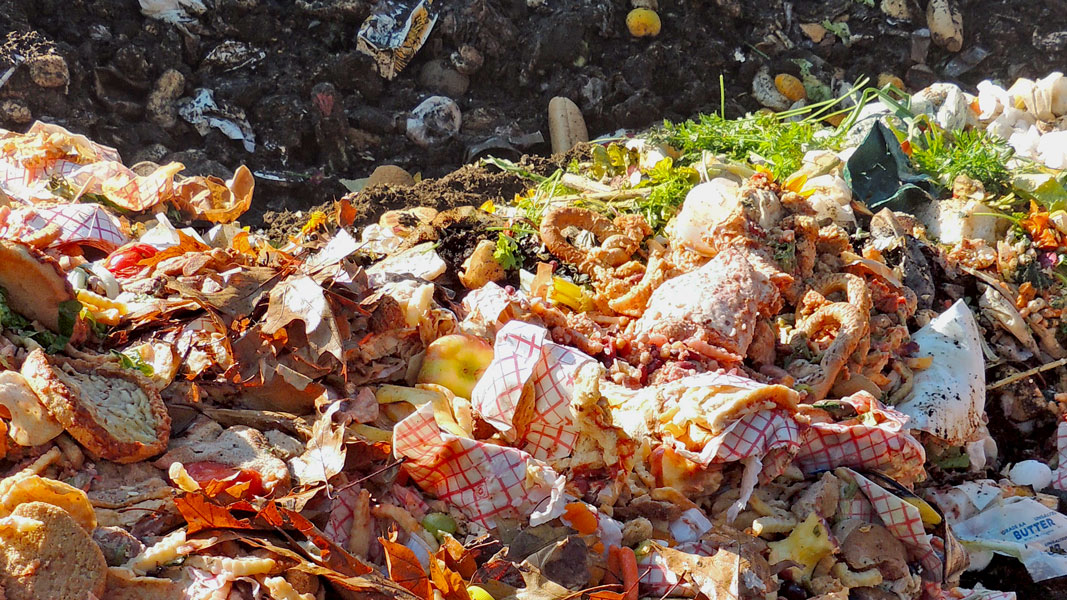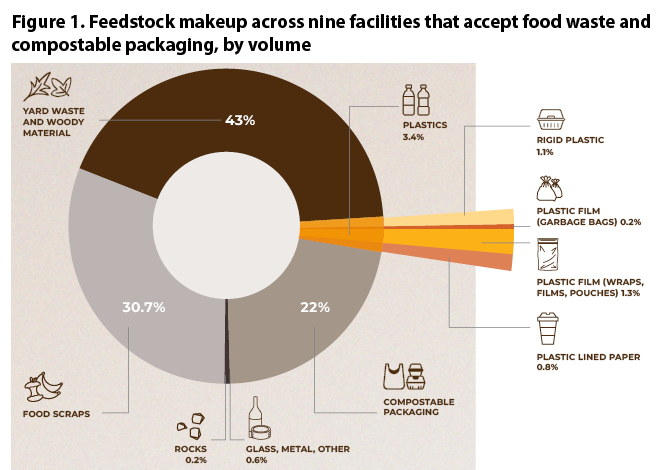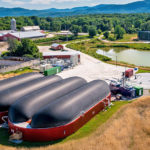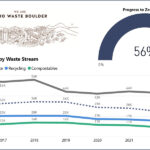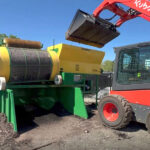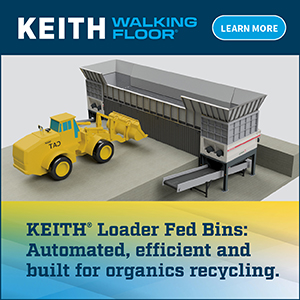Top: Incoming food waste load at a composting facility. Photo by Doug Pinkerton
The Composting Consortium, an industry collaboration led by the Center for the Circular Economy at Closed Loop Partners, released its Don’t Spoil the Soil: The Challenge of Contamination at Composting Sites report at the end of February, which includes first-of-its-kind data on the amount of contamination at U.S. composting facilities, and the significant cost to manage it. The Consortium partnered with 10 composters across the U.S.in a pilot project to build a dataset on contamination volumes, types, and costs of managing contamination at composting facilities. “The in-field study quantifies contamination rates in feedstock and finished compost, highlighting a need for policy, innovation and packaging design to help composters improve contamination mitigation and strengthen organics recovery processes,” notes Caroline Barry, the lead author and Program Manager at the Center. “Our field team conducted sampling at three points in the composting process — incoming food waste feedstock, screened overs and screened unders — to assess contamination rates throughout composting operations.”
The Consortium modeled its methodology on the 2021 Minneapolis Organics Sort, which separated materials into categories classified as organics, plastic-lined paper, recyclables and other contaminants. “A key differentiator of the Composting Consortium’s study is that we measured materials and contaminants in both mass and volume, and we expanded the definitions of these material categories,” explains the report. “For example, instead of recyclables, we included several subcategories, like rigid plastic, flexible plastic and multi-materials.” Finished compost (screened unders) were sent to Western Michigan University Paper Pilot Plant for analysis. The samples were screened, rinsed, and tested using FTIR spectroscopy, which employs infrared light to examine samples and identify their material characteristics. Figure 1 shows feedstock makeup at participating composting facilities.
Key findings highlighted in Don’t Spoil the Soil: The Challenge of Contamination at Composting Sites include:
- Conventional plastic is the most common contaminant received by composters, making up an average of 85% of the contamination that composters receive, by volume.
- Despite diligent efforts to combat contamination, conventional plastic can persist in the finished compost; 4 out of 10 composters in the study had trace amounts of conventional flexible plastic in their finished compost.
- Contamination has a significant impact on the bottom line; on average, 21% of composter operating costs are spent on contamination removal.
- Most composters had contamination, irrespective of whether or not they accept compostable packaging; several factors contribute to the levels of contamination that a facility receives.
- Eight out of nine composters who accept compostable products in the study had no detectable amounts of compostable packaging in their finished compost.
“Given this study’s sample size, results are not statistically significant, nor do we make claims about how closely the samples represent the average feedstock at these faciliites, as our study does not account for seasonality,” note the authors. “Rather, these findings serve as foundational reference points that should encourage future studies.”
Kate Daly, Managing Director of the Center for the Circular Economy at Closed Loop Partners wrote in her foreword that the “Composting Consortium’s findings shed light on the significant opportunities — and challenging realities — of composting in the U.S. today. This study lays the groundwork for future research and investment to scale end-of-life solutions for food and food-contact compostable packaging to drive circular outcomes.” A webinar, jointly sponsored by the Composting Consortium and the US Composting Council on “Don’t Spoil The Soil” findings, was recorded and is available at this link.


